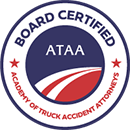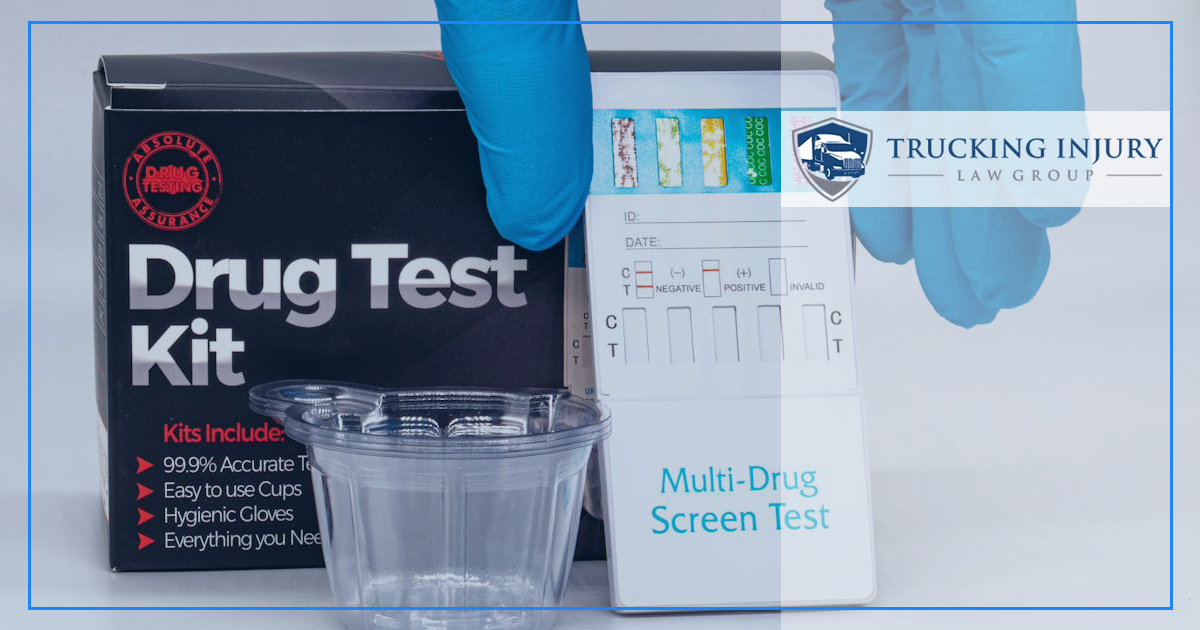How Often Do Truck Drivers Get Drug Tested?
Drug testing is a critical aspect of ensuring safety and compliance within the transportation industry, particularly among truck drivers.
But how often do truck drivers get drug tested, and why?
The Federal Motor Carrier Safety Administration (FMCSA) reported nearly half a million truck accidents in the United States in 2021, 110,000 of which included injuries. A 2018 International Journal of Environmental Research and Public Health study published by the National Library of Medicine (NLM) showed that 19% of commercial truck drivers reported binge drinking (5 or more drinks in a short period). Another 9.4% of the truckers polled admitted to consuming alcoholic beverages every day.
Another 2019 study published in the Journal of Preventative Medicine and Hygiene, also shared by the NLM, reveals that 27.6% of truck-driving respondents consumed drugs. Of these, 21.3% consumed amphetamines, and 2.2% consumed cocaine.
Given the immense responsibility these drivers hold in operating heavy vehicles on public roads, it’s essential to understand the frequency and regulations surrounding drug and alcohol testing for them.
Regulatory Requirements
Truck drivers are subject to drug testing as per regulations set forth by the Department of Transportation (DOT) in the United States. These regulations are aimed at ensuring that drivers operate commercial motor vehicles (CMVs) safely and responsibly.
The DOT mandates drug testing for various substances, including marijuana, cocaine, amphetamines, opiates, and phencyclidine (PCP). Compliance with these regulations is essential for both drivers and their employers to avoid penalties and maintain a safe working environment.
Pre-Employment Testing
Before a driver is hired by a company, they are typically required to undergo pre-employment drug testing. This initial screening helps employers ensure that they are hiring individuals who are free from illicit drug use.
Pre-employment testing is a standard practice in the trucking industry and is essential for establishing a baseline of a driver’s drug-free status before they begin operating commercial vehicles.
Random Drug Testing
In addition to pre-employment testing, truck drivers are subject to random drug testing throughout their employment.
Random testing is conducted unannounced and is designed to deter drug use among drivers by creating a sense of uncertainty about when they may be tested. Being spontaneously tested helps ensure that drivers maintain consistent compliance and serves as a vital tool in promoting safety on the roads.
Frequency of Random Testing
The frequency of random drug testing for truck drivers is determined by the DOT.
According to DOT regulations, carriers must conduct random drug tests on a percentage of their drivers each year. The specific percentage varies depending on the type of substance being tested for.
For example, according to the DOT, the FMCSA annual random drug testing rate for controlled substances for 2024 is 50%.
Post-Accident Testing
In the event of a serious accident involving a commercial motor vehicle, drivers are typically required to undergo drug testing as part of the post-accident investigation.
Post-accident testing helps determine whether drug use may have been a contributing factor to the accident and is crucial for ensuring accountability and safety on the roads. Truckers involved in crashes must undergo testing within a specified timeframe following the incident, as outlined by DOT regulations.
Reasonable Suspicion Testing
Truck drivers may also be subject to drug testing if there is reasonable suspicion of drug use based on observable behavior or other evidence.
Reasonable suspicion testing is typically initiated by a trained supervisor or manager who observes signs of impairment, such as:
- Slurred speech
- Erratic behavior
- The smell of drugs or alcohol on an operator’s breath or person
This type of testing is essential for addressing potential safety concerns promptly and ensuring that drivers are fit to operate commercial vehicles.
Return-to-Duty Testing
If a truck driver tests positive for drugs or alcohol, they are typically removed from duty and required to undergo a substance abuse assessment and participate in a treatment program. Before being allowed to return to driving, truckers must undergo return-to-duty drug testing to demonstrate that they are no longer using illicit substances.
Return-to-duty testing helps ensure that tractor-trailer operators who have previously violated drug regulations have successfully addressed their substance abuse issues and are fit to resume their duties safely.
Follow-Up Testing
Following a positive drug test result and completion of a substance abuse program, truck drivers are often subject to follow-up testing to monitor their ongoing compliance with drug regulations.
Follow-up testing typically involves regular, unannounced tests being performed over a specified period, as determined by the substance abuse professional overseeing a trucker’s treatment. This type of testing is essential for ensuring that drivers maintain their sobriety and continue to meet the requirements for operating commercial motor vehicles.
Drug testing is a vital component of maintaining safety and compliance within the trucking industry.
Truck drivers are subject to various types of drug testing, including pre-employment, random, post-accident, reasonable suspicion, return-to-duty, and follow-up testing. By adhering to DOT regulations and conducting regular drug testing, employers can help ensure that drivers are fit to operate their tractor-trailers safely and responsibly.
If you were hurt by a truck driver who was suspected to be under the influence of drugs at the time of your accident, you undoubtedly may have incurred significant costs in that crash.
A truck accident attorney can advise you if you’re eligible to recover compensation in cases like yours. Consultations at Trucking Injury Law Group are free.






